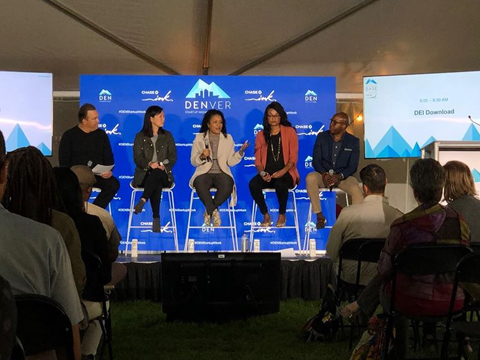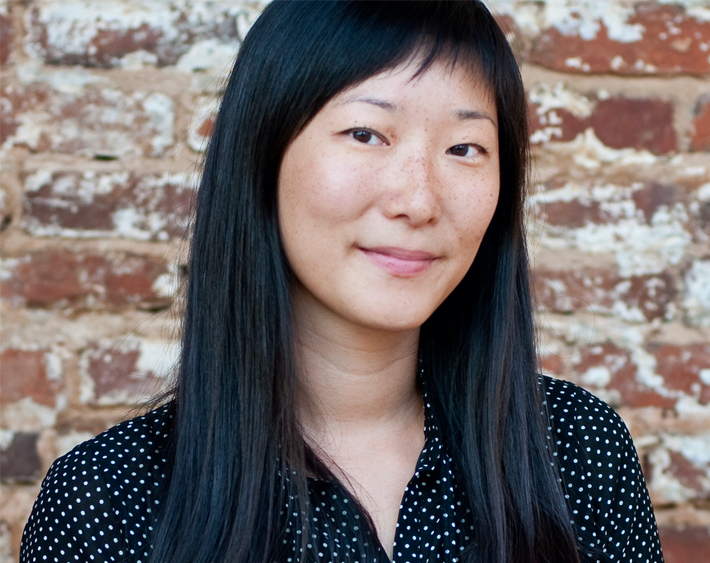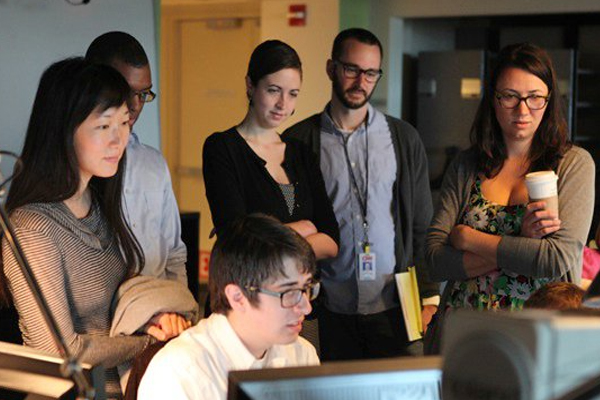A rotating Chief Diversity Officer (CDO) is a great way to introduce new perspectives to the D&I function and develop more advocates across the organisation over time. Potentially, it could also be a great way to deal with the current lack of qualified D&I professionals worldwide. In this guest column, Karyn Lu, Co-Founder of Strata, a Colorado-based diversity, equity and inclusion (DE&I) consultancy, explains why she proposed the idea of an annually rotating CDO position at the tech firm she joined. She also provides insights into how she ended up serving in that role as the company’s ‘first-ever CDO’, as well as how she set up the position for long-term success.
Two years ago, I relocated to Denver from the east coast of the US, and started working at a 400+ person software company Four Winds Interactive (FWI) as a leader on the design team. As an immigrant, a woman, a person of colour and a mom, I felt the lack of diversity very keenly. At work, I often found myself the only woman or person of colour in a room, which I found disconcerting from both a personal and business standpoint.
Feeling like ‘the other’ has been a pervasive theme in my professional life, and I have experienced plenty of moments of being the ONLY in the room. Anyone who has ever been marginalised understands how this feels. So I spoke out about DE&I at work because although ‘People Culture’ was one of the company’s key pillars, I never specifically heard any language around DE&I. It felt disheartening, as if the company didn’t care about supporting people like me. Of course, that wasn’t true, but that is very much the perception you get when a company is not actively engaging in this conversation.
I raised my concerns with our Chief People Officer, and an honest conversation turned into a pivotal and wonderfully catalysing moment. She affirmed the company’s commitment to DE&I, told me about numerous initiatives that were in the works, and invited me to help shape them. I then proposed the idea of an annually rotating chief diversity role, and that’s how I came to serve as the company’s first-ever CDO.
THE ROLE
The inspiration for the rotational CDO role came from Culture Amp’s Steven Huang. He set up a rotational role there and served as their first CDO. Describing the reasons for setting it up this way, he said: “Not even the bravest D&I leader will go it alone because a single person has both a limited amount of empathy and an acute awareness of their blind spots. Our Head of Diversity and Inclusion will rotate annually, introducing new perspectives to the function and developing more advocates across the organisation over time.”
I believed that both a rotational CDO and steering committee were key because this type of work should never live and die with one person. Different CDOs will be effective in different ways, and different committees will champion different causes. It would also mitigate the mental and emotional burnout that is typical of this work.
We set up our CDO position to rotate on a rolling 12-month basis, along with a steering committee comprising diverse contributors throughout the company, at every level and across as many functions as possible. It also included a remote team member. Because the CDO and the steering committee would both rotate out annually, we instilled key ‘People Ops’ partners to uphold consistency and funding.
Once my 12-month term was up, a member of my steering committee rotated up into the CDO position, and I rotated down into her steering committee. Members of our inaugural committee were hand-selected by the People Ops partners and me.
In its second year, once the programme was more established, we opened up the role to nominations, as well as an open application process. The company is about to head into its third rotation this spring, so the set-up has been successful and sustainable to date.

KEY GOALS
My goal in the CDO role was always to make DE&I a key part of my company’s DNA, and not just as an ‘initiative’ or a role that was tied to one person’s passion. We started by creating a purpose statement: “Our zeal for inclusion fuels our best work” – to serve as a north star for strategic decision-making. Next, we established three pillars to focus our efforts around: show up (showing up for one another and for our community), learn (learning a common language to talk to one another with), and celebrate (being deeply curious and celebratory of one another as humans who, after all, work at the same company).
One of my favourite projects in this role was a company cookbook, where we not only invited individuals to share their favourite recipes, but also the unique (and very telling) stories behind those recipes. Rituals are important when you’re in the business of shifting culture, and storytelling is one of the best tools we have to do that.
LESSONS LEARNT
Just start: HR leaders often feel as if DE&I is an initiative or programme that must be perfectly baked before it’s launched. Unfortunately, a perfect plan will never exist, as DE&I is a quickly moving target and evolving conversation. In the meantime, the longer you don’t talk about it, the more marginalised people will feel. The key is to simply START having the conversation. This will take some bravery to navigate, and the uncomfortable awareness that you will almost certainly fail at some point. But it will work if you set the expectation that you’re all in it together and forever learning together.
Forge ahead but keep someone at the starting line: As you get deeper and more advanced into the DE&I conversation, you may be inadvertently leaving people behind. At my company, we quickly moved from conversations about gender and race to topics like neurodiversity. Someone bravely came forward and confessed that although he wanted to become an ally, words like ‘privilege’ were still confusing for him, and he felt embarrassed to admit how much he didn’t know. Don’t slow your momentum if you’re ploughing ahead into deeper topics. I’ve learned that you simply must keep a welcoming baseline to bring in new people who want to learn but may be intimidated by the conversation.
Be aware of performative DE&I work: This may be the most dangerous trend I see in the DE&I space today. Many companies realise by now they must engage in DE&I work, but fall into the trap of simply copying what others are doing without understanding the ‘why’ behind each decision. DE&I then becomes a checklist, and there’s no quicker way to tokenise or marginalise the very people you’re trying to attract and retain.
For example: are you putting photos of all your ‘diverse’ employees on your careers page? Are they still up there long after some of them depart? How might that make them feel? If a new employee were to join your company based on this appearance of a diverse workplace, would they truly feel a sense of belonging upon entry? Be ruthless when you ask yourselves: Who are we doing this for? Who is actually benefiting? Who is it hurting?
CONCLUDING THOUGHTS
Now that I’ve rotated out of the CDO role, the next step in my journey at my startup is to continue moving the needle here in Colorado. I’m now focused on helping organisations understand how to approach this work in a non-performative way, through training, coaching, DE&I programme launch planning and an interim (fractional) Chief Inclusion Officer offering (CIO). This is targeted towards startups that want to start off on the right foot with their culture, but can’t afford a full time CIO just yet.
My purpose is to ‘inspire moments of meaning and beauty through human connection’. All of the work I’ve done in the DE&I space ties deeply into this sense of purpose. I’ve also come to realise that meaning and beauty can be hard-won when you’re doing the work of changing hearts and minds. To really move the needle, the best thing any of us can actually do is to help each other get comfortable with being uncomfortable.
INSPIRING COLLABORATION
Conversations in the role of CDO role actually inspired a larger collaboration and movement. Through organic conversations with other DE&I change-makers in the community, I became a founding member of ‘Elevate Change’, a coalition of 20+ (and growing) forward-thinking Colorado companies dedicated to creating workplace cultures of inclusion and empowerment for all.
Together, we’re working to shift the conversation at a larger scale within the Denver community. Here, we openly share ideas and encourage everyone to steal and adapt for their own organisations. We operate on the philosophy that there’s no need to be precious about knowledge or ideas in this space; the more of it that goes out into the world, the better the world becomes for us all.
BIOGRAPHY

Karyn Lu is Co-Founder of Strata, a Colorado-based DE&I consultancy. She has 15 years of experience working with global digital/tech companies, growing and mentoring teams across design, product, and innovation functions. At FWI, she created a new role and served as the company’s first-ever CDO. She also co-founded Elevate Change, a coalition of Colorado-based companies dedicated to creating workplace cultures of inclusion and empowerment for all. Karyn has been a TEDx and Creative Mornings speaker, and her work has earned a Webby Award and a CES innovation Award.







































